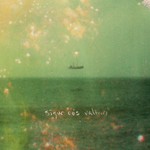Valtari
Studio Album by Sigur Ros released in 2012Valtari review
Music of severe northern shores
Of course, there is a part of the polymorphic, manifold art by the Icelandic ensemble Sigur Ros that we are doomed to omit due to not knowing their native language; but, frankly, it is mainly not the lyrics, but the music that make them so powerful. In almost twenty years spent on stage, the band from the distant and mysterious northern land have convinced the audience in its uniqueness and originality based on the fusion of rock, psychedelic and electronic music, and classic instruments. Whichever Sigur Ros album you take, it turns into a journey, either one to the ensemble’s country or into the depths of your own subconscious; and every time it ends, you want to go there again. Recently, the Icelanders have released a new studio work that kept people waiting for longer than ever, four years. The first parts of it were penned in 2007, but then the work was suspended due to the members participating in solo and side projects, and completed only in 2012. The fresh record is called Valtari and demonstrates, quite expectedly, the trademark sound that easily displays Sigur Ros elegant style.
Loyalty to the style
Following the 2008 release of the very successful and widely acclaimed album Með Suð Í Eyrum Við Spilum Endalaust, it could have seemed that Sigur Ros had inevitably stepped on the path to the simplification of their music. Tracks became shorter as their structures got more predictable, which was taken by many as the basis for the new style of the Icelandic project, but it never happened. Valtari, speaking of the format, is a return to the roots of the Scandinavian band. There are no more names in English, but there is an increased average duration of tracks up to six or seven minutes, and, what’s most important, the early atmosphere is back. The impressive instrumental intro Eq Anda with organ playing the main part brings us to the album’s first single, Ekki Mukk. Without much variety in intonations or pitches, this song has a mighty hypnotizing effect as if getting us ready for a travel into other worlds. It is followed by something reminding of a church hymnal, Varut, with much pathos in the chorus containing a call to God. In the middle of the album lie two tracks with a solid electronic and ambient component inside, Rembihnutur, and Dantalogn. That’s the last time we hear any words here.
Valtari is music for the chosen
Valtari ends with a set of three songs where it is difficult to tell electronica from genuine instruments. Sigur Ros literally test the listener for endurance as they offer fifteen minutes of music without many changes in tempo, catchy melodies and any lyrics. Music like that is mostly selected to accompany serious and thrilling motion pictures, except here you are the one to draw pictures. On the other hand, if you are still with the album and have gone so far you must really like what the Icelanders do. Of course, this material was not made for any mood, neither is it aimed at all categories of listeners. Valtari songs will not sound at New Year parties, and it is impossible to sing along to them. Probably, one day Sigur Ros will release an album of what might be called pop music, but this definitely will be an experiment for them.

